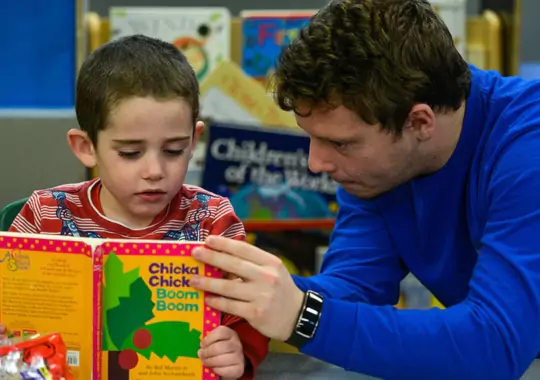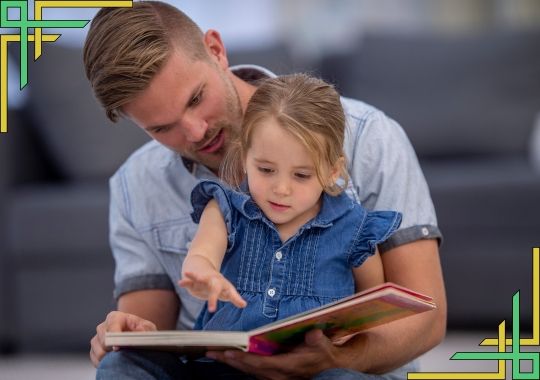When it comes to understanding autism spectrum disorder, it's crucial to dispel myths and misconceptions. By addressing misconceptions-about-autism, we can foster a more accurate and compassionate understanding of this neurodevelopmental condition. Through debunking common myths, we can promote acceptance and support for individuals on the autism spectrum
As Amazon affiliates we may earn a commission if you purchase a product at no cost to you.
Preference for Person-First Language
There's a misconception that autistics prefer person-first language, such as "person with autism," over identity-first language, like "autistic." However, many autistics find person-first language unnecessary and even implying that being autistic is separate from being a person.
It's crucial to recognize that language preferences can vary among individuals within the autistic community. While some may prefer person-first language to emphasize their humanity above their condition, others advocate for identity-first language as it acknowledges autism as an integral aspect of their identity. This diversity in preferences highlights the importance of respecting individual choices regarding language use.
One argument against person-first language is that it perpetuates the idea that autism is inherently negative or something to be separated from the individual. By placing the term "autism" after "person," it suggests that autism is an addition to the person rather than an inherent part of their identity. This perspective can further stigmatize autism and undermine autistic individuals' self-acceptance and empowerment.
Moreover, some autistic self-advocates assert that identity-first language aligns with the social model of disability, which emphasizes societal barriers and attitudes as the primary sources of disability rather than viewing the condition as a defect within the individual. Embracing identity-first language can promote a more inclusive and accepting society by challenging misconceptions and fostering a positive autistic identity.
In essence, understanding and respecting autistic individuals' language preferences are essential in promoting inclusivity and fostering meaningful dialogue. While some may prefer person-first language for its emphasis on individuality, others advocate for identity-first language to affirm their autistic identity. Recognizing this diversity in preferences and the underlying rationale behind each perspective is crucial for creating a supportive and inclusive environment for the autistic community.
Autistics are Not Romantic
Contrary to the misconception, many autistics desire romance. While there are aromantic and asexual individuals on the spectrum, their presence doesn't negate the romantic inclinations of others.
It's a common misconception that individuals on the autism spectrum are not romantic or incapable of desiring romantic relationships. However, this belief is inaccurate. Research and anecdotal evidence indicate that many autistics do desire and pursue romantic connections. While there may be variations in romantic inclinations among individuals with autism, this diversity is not unique to the autistic population. Autistics, like neurotypical individuals, can have a range of romantic orientations and preferences.

Autism Speaks is a Good Advocacy Organization
Despite its prominence, Autism Speaks has faced criticism for excluding autistic voices from its leadership and advocating for curing autism. Many in the autistic community feel that Autism Speaks does not adequately represent their interests and concerns. Moreover, the organization has been accused of perpetuating harmful stereotypes about autism.
While Autism Speaks may have good intentions, its approach and messaging have been divisive. Critics argue that the organization's focus on finding a cure for autism overlooks the value and contributions of autistic individuals. Instead, they advocate for organizations like the Autistic Self-Advocacy Network and the Autistic Women and Non-Binary Network, which prioritize the inclusion of autistic voices and advocate for acceptance and support rather than seeking a cure.
While Autism Speaks may be well-known and have significant resources, its controversial history and approach have led many in the autistic community to question its effectiveness as an advocacy organization. Organizations that prioritize the inclusion of autistic voices and advocate for acceptance and support are often viewed as more beneficial for the community overall. You can read some Autism books on Amazon.
Supporting Your Autism Journey.
Desirability of a Cure for Autism
While some individuals may perceive a cure for autism as desirable, many within the autistic community find this notion offensive. Autism is not merely a condition to be cured but an integral aspect of an individual's identity. Autistic individuals often embrace their neurodiversity, viewing it as a fundamental component of who they are.
The idea of curing autism disregards the strengths and talents that autistic individuals possess. Many autistics excel in areas such as creativity, problem-solving, and attention to detail. Instead of focusing on eliminating autism, efforts should be directed towards supporting autistic individuals and accommodating their needs within society.
Moreover, autism acceptance and advocacy movements emphasize the importance of understanding and respecting neurodiversity. Rather than seeking to change autistic individuals, the focus should be on promoting inclusion, acceptance, and support for their unique perspectives and experiences.
While some may perceive a cure for autism as desirable, many autistics reject this notion, embracing autism as an essential aspect of their identity. Efforts should be directed towards fostering acceptance, understanding, and support for autistic individuals within society.

Primarily Children
There's a common misconception that autism primarily affects children. However, autism is a lifelong condition that persists into adulthood. While autism is typically diagnosed in childhood, it's crucial to recognize that autistic individuals continue to require support and accommodations throughout their lives.
Autism awareness campaigns and media often focus on children, leading to the misconception that autism is predominantly a childhood issue. However, addressing the needs of autistic adults is equally important. Autistic adults face unique challenges and require tailored support services to lead fulfilling lives.
Efforts to promote understanding and acceptance of autism should encompass individuals of all ages. By acknowledging that autism affects people across the lifespan, society can better accommodate the diverse needs of autistic individuals and ensure they receive appropriate support and services.
Recommended Article

Frequently Asked Questions FAQs
Do all autistic individuals have intellectual disabilities?
No, not all autistic individuals have intellectual disabilities. Autism spectrum disorder (ASD) encompasses a wide range of abilities and characteristics, and intelligence levels vary among autistic individuals.
Is autism caused by poor parenting or vaccines?
No, autism is not caused by poor parenting or vaccines. These are common misconceptions. Research suggests that a combination of genetic and environmental factors contributes to the development of autism.
Are autistic individuals incapable of forming relationships?
While social interaction may be challenging for some autistic individuals, it does not mean they are incapable of forming relationships. Many autistic individuals form deep and meaningful connections with others, although they may express and experience relationships differently.
Conclusion
It's evident that there are numerous myths and misconceptions surrounding autism spectrum disorder. By debunking misconceptions-about-autism and spreading accurate information, we can promote greater understanding, acceptance, and support for individuals with autism. It's crucial to challenge these misconceptions and replace them with facts to create an inclusive environment.










